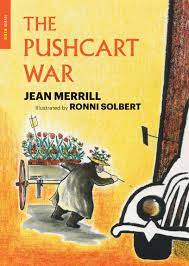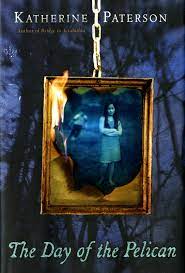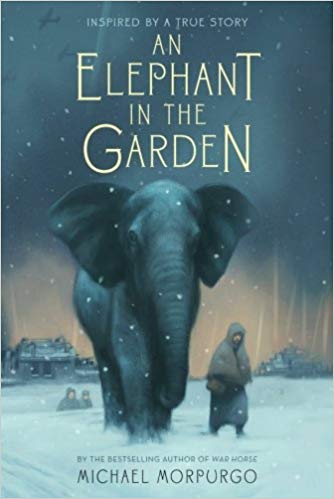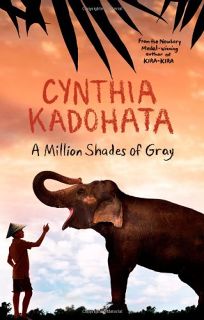Shadow
Michael Morpurgo (J Historical Fiction)
Aman and his family lived in the beautiful and peaceful valley of Bamiyan. When Russian fighters came followed by the Taliban, Afghanistan was no longer the safe home that Aman and his people once knew. Forced to flee his homeland, Aman and his mother make the perilous journey to England through Kabul, Kandahar, Iran, Turkey, and across the English Channel. Through it all, he was given comfort, joy, and hope through a Springer Spaniel that he named Shadow. Now, six years later, Aman and his mother face deportation and it’s up to his classmate Matt and his grandfather to find a way to keep Aman in England. With time running out, will Aman lose his new home just like he lost Shadow?
Michael Morpurgo is the reason why historical fiction is my favorite genre. His strong characters take center stage while historical facts and pivotal details provide a colorful backdrop to a compelling and heart-pounding story. Morpurgo sheds light on a region where the police are just as dangerous as the area warlords and local militias; and he shows readers that money can’t guarantee safety and trusted allies are easily corrupted by force or bribery. It is a dangerous world and Aman discovers this all too soon at the young age of eight.
Morpurgo also introduces readers to Yarl’s Wood—a place where Aman and his mother are kept prior to their scheduled deportation. Opened in 2001, the facility is in Bedfordshire, UK and is the main removal center for up to 405 individuals. A second wing added in 2002 increased capacity to 900. Shadow details the horrific conditions of the facility including poor living conditions, children being separated from their parents, and a lack of access to legal representation. According to a recent online article by the BBC (https://www.bbc.com/news/uk-england-beds-bucks-herts-66121098), the facility now houses only men and although conditions seem to be improving, officials admit that there is still more work to be done.
Shadow is told from three points of view: Aman, Matt, and Matt’s grandfather. For the most part, Aman is our main narrator and through his lens we experience courage and hope of the strongest measure. This book is recommended for readers ages 10 to 14 and contains passages dealing with physical abuse, death, and animal cruelty. Opting for the higher end of the age range might be a safe choice for sensitive readers although all will benefit from the accurate account of a region and people in turmoil while navigating the emotions that this raw, immersive, and captivating story provides.
Shadow reminds us to never underestimate the human spirit or the impact that a loyal and brave companion has on our own capacity to trust and endure the seemingly unbearable. During one of their more difficult times, Aman’s mother said to him, “She may be a dog, but I think she is more like a friend than a dog, like a friendly shadow that does not want to leave us. You never lose your shadow.”
Rating: 5/5
* Book cover image attributed to: www.abebooks.com
We’re now posting videos of some of our book reviews! Follow us on Facebook at www.facebook.com/thedustyjacket or on Instagram @tdjreviews and join in on the fun!









